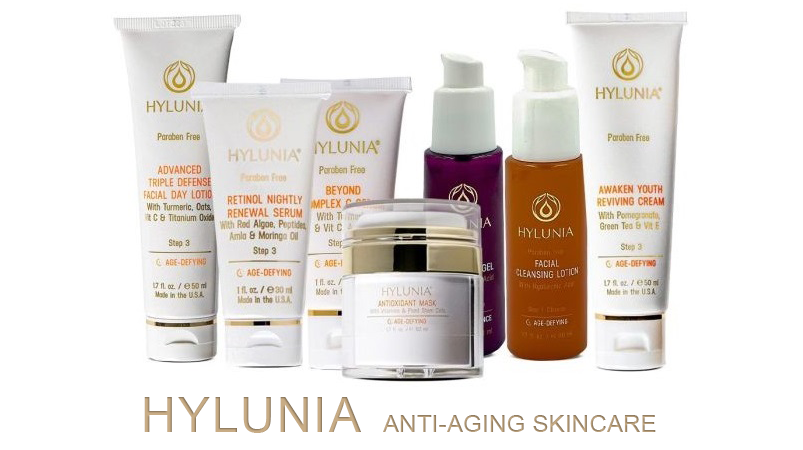
Keeping skin firm and resilient as we age can feel like trying to turn back the clock, only without the instruction manual. Many skincare products promise to help, yet not all are created equal. To effectively support your skin’s collagen, it helps to know which ingredients are worth your time—and which might just be fancy filler.
Contents
- Understanding Collagen: The Foundation of Youthful Skin
- Vitamin C: A Powerhouse Antioxidant for Collagen Production
- Retinol: The Collagen-Stimulating Superstar
- Peptides: Building Blocks for Collagen
- Hyaluronic Acid: The Ultimate Hydrator for Firm, Plump Skin
- Antioxidants: Essential Defenders for Collagen
- Building a Collagen-Boosting Routine
Understanding Collagen: The Foundation of Youthful Skin
Collagen is the most abundant protein in our bodies, found in skin, bones, muscles, and tendons. Think of it as the “scaffolding” that holds everything up. In skin, collagen provides structure and strength, giving it that plump, firm look we associate with youth. But as we get older, our collagen production naturally decreases. Add environmental factors like sun exposure and lifestyle habits, and the decline can happen faster than we’d like.
How Collagen Loss Affects Your Skin
When collagen production slows, skin becomes thinner, drier, and more prone to wrinkles and sagging. You might notice more fine lines around your eyes, mouth, and even on your neck. Collagen loss can also impact skin’s ability to bounce back, leading to a more “tired” appearance. The good news is that certain ingredients can support or stimulate collagen production, helping to minimize these effects and keep skin looking firm.
Vitamin C: A Powerhouse Antioxidant for Collagen Production
Vitamin C is one of the most well-studied ingredients for collagen production, and for good reason. This powerful antioxidant not only fights free radicals (the sneaky little molecules that break down collagen) but also plays a direct role in collagen synthesis. Without vitamin C, the body can’t effectively produce collagen, which makes it essential for any anti-aging routine.
How to Use Vitamin C for Maximum Benefit
Vitamin C serums are an ideal choice for topical application, as they deliver a concentrated dose directly to the skin. Look for serums with L-ascorbic acid, the most potent form of vitamin C, and aim for a concentration between 10% and 20%. Keep in mind that vitamin C is sensitive to light and air, so choose products in dark, air-tight containers and store them in a cool, dark place.
Best Practices for Combining Vitamin C with Other Ingredients
Pairing vitamin C with ingredients like vitamin E and ferulic acid can boost its stability and effectiveness, providing even greater antioxidant protection. Use it in the morning to take advantage of its protective qualities against UV damage, following up with sunscreen. It’s like giving your skin a little shield before it faces the elements.
Retinol: The Collagen-Stimulating Superstar
Retinol is a vitamin A derivative that’s long been a favorite in the anti-aging world, and for good reason. It accelerates cell turnover, meaning it helps your skin shed old, damaged cells faster and promotes the growth of new ones. But the magic of retinol doesn’t stop there—it also directly stimulates collagen production, which can help reduce the appearance of fine lines, wrinkles, and even skin texture.
Using Retinol: Start Slow and Build Up
If you’re new to retinol, it’s wise to ease into it. Start with a low concentration and apply it only a few times a week to avoid irritation. Over time, as your skin builds tolerance, you can increase the frequency and concentration. Retinol can make skin more sensitive to the sun, so it’s best to use it in the evening and follow up with a moisturizer.
Combining Retinol with Other Skincare Steps
Retinol works well on its own, but combining it with a good moisturizer can help offset any dryness or irritation. Avoid using retinol at the same time as vitamin C, as they can have conflicting pH levels. Instead, alternate them—vitamin C in the morning, retinol at night—to keep your skin happy and healthy.
Peptides: Building Blocks for Collagen
Peptides are short chains of amino acids, essentially the building blocks of proteins like collagen and elastin. When applied topically, peptides act as messengers, signaling your skin to produce more collagen. Think of them as little reminders, encouraging your skin to keep up the good work.
Types of Peptides and Their Benefits
Not all peptides are the same, and different types serve different functions. For collagen production, look for copper peptides, which have been shown to enhance collagen synthesis and skin healing. Palmitoyl pentapeptide-4 is another peptide to look for—it’s known to help reduce wrinkles and improve skin’s elasticity.
How to Incorporate Peptides into Your Routine
Peptides are gentle and work well with most other ingredients, making them easy to add to any routine. You can find them in serums, creams, and even moisturizers. Peptides work best when used consistently, so apply your peptide product daily for the best results. With a little patience, they can help maintain skin’s firmness and texture.
Hyaluronic Acid: The Ultimate Hydrator for Firm, Plump Skin
While hyaluronic acid doesn’t directly stimulate collagen production, it plays an essential supporting role. Hyaluronic acid is a humectant, meaning it draws moisture into the skin, which keeps it plump and resilient. Hydrated skin is better able to maintain its structure, making fine lines and wrinkles less noticeable.
Benefits of Hyaluronic Acid for Aging Skin
As we age, our skin produces less hyaluronic acid, leading to dryness and loss of volume. Using hyaluronic acid topically can help replenish moisture levels, improving the look of elasticity and giving skin a “fuller” appearance. Look for serums with hyaluronic acid and apply them to damp skin for maximum absorption.
How to Combine Hyaluronic Acid with Other Ingredients
Hyaluronic acid is extremely versatile and pairs well with almost every other skincare ingredient. You can layer it under your favorite moisturizer, use it with vitamin C, or even combine it with peptides for a moisture boost. It’s the ideal addition to any collagen-boosting routine, as it enhances the skin’s natural plumpness.
Antioxidants: Essential Defenders for Collagen
Antioxidants are like bodyguards for your skin’s collagen, protecting it from free radicals that can break down proteins and speed up aging. Vitamin C is one of the best-known antioxidants, but there are others worth adding to your routine to maximize protection.
Noteworthy Antioxidants for Collagen Support
- Vitamin E: A powerful antioxidant that protects skin from damage and supports moisture retention.
- Green Tea Extract: Contains polyphenols that help protect collagen from free radical damage.
- Niacinamide (Vitamin B3): Enhances the skin barrier and helps skin retain moisture, indirectly supporting collagen.
These antioxidants can be found in various serums and creams, often in combination with other ingredients. Consistent use can help maintain collagen levels and prevent early signs of aging.
Building a Collagen-Boosting Routine
To make the most of collagen-boosting ingredients, consistency and proper layering are key. Here’s a basic routine to get you started:
Morning Routine
In the morning, start with a gentle cleanser followed by a vitamin C serum to protect against free radicals. Layer on a hyaluronic acid serum for hydration, then apply a moisturizer with peptides. Finish with sunscreen—protecting your skin from the sun is one of the best ways to prevent collagen breakdown.
Evening Routine
In the evening, cleanse and apply a retinol serum to stimulate collagen production overnight. Follow with a hydrating moisturizer. You can add a peptide serum here as well, to give your skin an extra boost of collagen support while you sleep.
By understanding and using these collagen-boosting ingredients, you’re giving your skin the tools it needs to stay resilient, firm, and smooth. While aging is inevitable, how you care for your skin can make a significant difference in maintaining its health and appearance over time.

